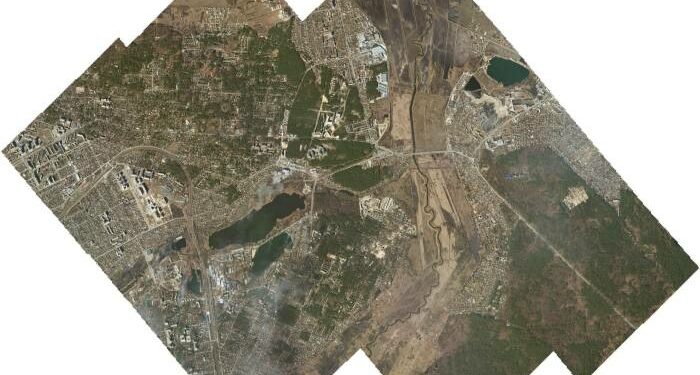The writer is founder of Sifted, an FT-backed media company covering European start-ups
A column of Russian military vehicles outside Berezivka, 40km west of Kyiv, was identified, targeted and destroyed in late February, thanks to intelligence provided by a 15-year-old schoolboy.
Responding to the Ukrainian army’s appeals to help spot Russian troop movements, Andrii Pokrasa sneaked into a field one night and tracked down the column with his personal drone. His father entered the GPS co-ordinates into a social media app. Ukrainian artillery then pinpointed the Russian convoy. The experience was “very, very scary”, Pokrasa told Global News, but he was determined that the Russians would not occupy his town.
Pokrasa is one of about 1,000 civilian drone operators contributing to Ukraine’s extraordinarily courageous and ingenious defence. They do so at extreme personal risk. There have been several reports of Russian forces shooting civilians as suspected spies. Independent security experts have also warned about the dangers of blurring the lines between civilians and combatants, calling for the laws of war to be updated.
Once confined to the direct participants on a physical battlefield, war has insinuated itself into many other fields of human activity. Today’s battlefields, particularly in urban areas, are saturated with cameras, sensors and monitoring devices all generating data that can be analysed and exploited from anywhere in the world. Open-source intelligence agencies, such as Bellingcat and Witness, have been using this data, often shared on social media, to verify the claims of each side and investigate alleged war crimes.
As well as Ukrainian civilians tracking Russian troop movements on the ground, some private sector satellite companies observe them from space. One is the San Francisco-based Planet, which operates a fleet of about 200 low earth orbit satellites. These tiny satellites photograph every point on the planet once a day, enabling the company to identify “patterns of life”. Most often that data is used for detecting river pollution, deforestation or urban sprawl. But during the war, Planet has given its geospatial data on Ukraine to Kyiv and Nato. It has also shared its imagery with several media outlets, including the FT.
The company argues that it has helped increase transparency, reduce insecurity and military miscalculation, assist humanitarian relief and counter disinformation. “It really is a different era,” says Will Marshall, co-founder of Planet. “Governments cannot get away with shit any more.”
But sharing such data involves moral and political choices. Marshall acknowledges that his company has a responsibility to ensure that its data is not used for sinister purposes. Planet’s ethics committee carefully scrutinises all potential customers. The company will never sell its data to Russian entities under sanctions, for example. “It is easy to say that technology is neutral and that we are not playing God. But we are playing God,” he says. “Ethics is complicated.”
Some efforts are being made to establish norms and standards to regularise open-source intelligence. Earlier this year, the Berkeley Protocol was published, outlining the procedures needed to turn open-source intelligence into legally admissible evidence when prosecuting war crimes. Governments are also considering how best to verify and disseminate such intelligence.
But observers draw a distinction between civil society organisations and companies that take responsibility for what they produce and share, and more informal groups of foreign hacktivists keen to help Ukraine. When they play defence, these “white hat” hackers can help to find and plug holes in Ukraine’s digital networks. But if they participate in disinformation campaigns or cyber attacks on Russian targets, there may be unpredictable results. They can be exploited by intelligence agencies pushing propaganda and criminal gangs set on extortion. They also run the risk of prosecution or revenge attacks.
“It is understandable why Ukrainians who are defending their homes and lives would reach for any possible tool to defend themselves,” says Ronald Deibert, director of the Citizen Lab at the University of Toronto. But that does not mean all norms and rules are suspended for everyone else: “If you’re going to get involved, you better understand the consequences.”
Technology has empowered civil society to challenge the state’s traditional monopoly on warfare. By creating an intelligence agency for the people, this development can bring real benefits and greater accountability. But we must also be alive to its dangers.











